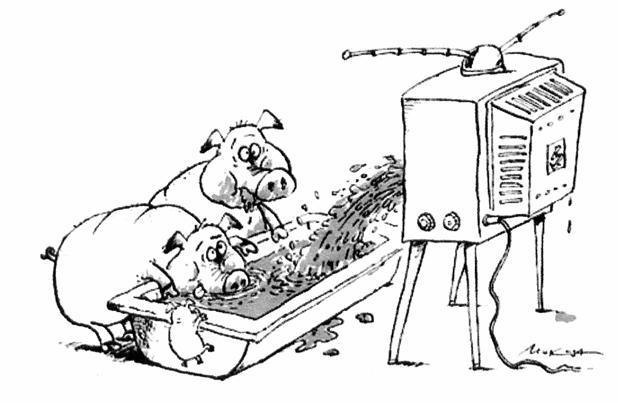Most people learn time management through their own, sometimes bitter, experience. And how useful it would be to learn its basic rules at the very beginning of your career path! If you want to increase your productivity, use these tips.
Prioritize
Time control should be your priority. Divide it up as needed and stick to the schedule so you don't regret minutes and hours being wasted.
Consider randomness
Plan to spend about five hours on work - the rest of the time will probably be taken up by sudden work moments that cannot be taken into account in advance.
Don't ask too much of yourself
It’s perfectly normal that sometimes you just don’t have the energy to be productive. Do your best when you can, and when you feel low, allow yourself to relax.
Respect your time
Value your time and don't let others waste it.
Don't try to do everything at once
Multitasking hurts productivity. Solve problems one by one. 
Create a daily routine
Set a schedule for yourself and gradually adapt to it.
Consider your features
Each person can stay focused for a limited amount of time. Take this into account when planning.
Just get down to business
Work is the best way to get started! Just take on simple and small tasks to get you hooked, and it will be easier for you to move on to difficult and long tasks.
Give up perfectionism
Don't plan for everything to be perfect. Any action is better than no action.
Don't work too long
A large number of working hours does not mean a greater result. 
Separate tasks
Learn to separate what does not require special attention from what needs to be done first.
Make appointments in the morning
If the meeting is in the morning, you will be more productive. Time before appointments and gatherings is often wasted.
Schedule a post-meeting discussion
Never assign the next task immediately after the meeting - you will need some more time to discuss the details.
Don't switch attention radically
Let the same topic be the focus of your attention, strong changes in activity are distracting.
Allow Procrastination
Let the working moments are interspersed with small pauses for rest.
Advance Gradually
Divide massive goals into several small ones and move forward little by little. 
Make a to-do list the right way
Write things in order of their importance and correctly determine this importance.
Plan one thing
The most important thing in a day should be only one task.
Don't spray
Break things down into smaller things, don't do everything at once.
Delegate
If someone else can do something, delegate!
Don't think about the past
Look exclusively to the future!
Control the time
Every task must have a final due date.
Define the end of heavy tasks
Everything ends sooner or later, stressful moments too.
Take notes
Reminders and notes in a notebook make life easier.
Time management in modern society. Why people do not have enough time and how to learn to do everything. Basic rules for effective time resource management.
The content of the article:
Time management is the ability to control the amount spent on certain activities, manage it competently, analyze the effectiveness of one's work and find additional resources, thereby increasing productivity. Such skills give a person the opportunity not only to have time to complete the planned activities, but to do it efficiently and have fun. The science that studies the process of planning and managing one's own or someone else's time resource is called time management.
The need for time management

The issue of time management at the state level arose and began to be seriously studied in Russia back in the 20s of the last century. Various theories and methods have been proposed to increase the effectiveness of activities, including by organizing the personal effectiveness of each individual person.
In the 70s of the twentieth century, the idea was introduced that the personal time management system should be based on the effective thinking of the individual, which must be developed. Only in 2007 did a department of time management appear in one of the Moscow universities.
On the one hand, time is not an unlimited resource, so it is not surprising that we often do not have enough of it. But, on the other hand, for everyone in the day the amount of time is the same. So why, at the same cost, do some manage to do much more than others, and, as a result, get a better result? It's not about the number of hours, but the efficiency of their use.
Many are mistaken in believing that time management is only necessary for managers at work and people who pathologically do not have time for anything. In fact, everyone must comprehend the art of managing their time in order to be successful not only in work, but also in life.
The task of time management is not to drive you into some kind of framework. On the contrary, planning allows you to expand these limits, since you yourself do not notice how much time can be freed up if it is spent correctly. To master the science of time management, someone will need a few weeks, and someone months.
It all depends on several factors:
- Strength of will. Without this character trait, in principle, it is difficult to achieve any results. Therefore, if something didn’t work out the first time, you don’t need to give up. You need to figure out why it didn't work and do it again.
- Former planning skills. If a person knows how to plan some of his actions, for example, shopping, relaxing, holding events, then he should be familiar with the basic principles of planning. In this case, it will be easier for him to learn how to manage time than for someone who lives impromptu all his life. However, nothing is impossible for the second category of people, it just might take a little longer.
- Support. How often a person does something for the company: starts or quits smoking, goes to the gym, attends any events. Having support from loved ones is very important. Therefore, if the whole team or the whole family decides to comprehend the art of time management, the result will be achieved much faster.
Taboo when planning your time

Before you learn how to manage your time, you need to analyze what takes 24 hours. Having scheduled at least one of your days by hours and minutes, you will notice that most of the precious resource is wasted.
Consider the main taboos in time management:
- long sleep. Here you can’t get anywhere - you need to sleep so that you have the strength to effectively spend the rest of the time. Healthy sleep is 8 hours. But sleeping until dinner is an unreasonable use of time.
- Telephone conversations. The phone both saves and takes away your time. On the one hand, information can be received or transmitted faster. But, on the other hand, empty talk sometimes takes away most of the day.
- Watching TV and computer games . Of course, you need to rest, and everyone understands the meaning of this word in their own way. But watching the next series or a new “shooter” will not be able to charge you with new forces or be useful.
- Bad habits. People who have bad habits like smoking spend a lot of time during the day taking smoke breaks. It would seem that drinking a cup of coffee or smoking is a matter of 2-3 minutes, but our day consists of these minutes.
Advice! There is no need to regret the time that has passed. This is a completely useless exercise, because it will not come back. It is better to learn from now on not to allow its useless waste.
Features of teaching time management

There are various techniques that teach the basics of time management. A lot of thematic information on this issue can be found on the Internet. But it is better when a professional will share the secrets with you. Increased demand for the study of this issue creates a supply. And today in our country literature is printed in large quantities and various trainings on time management are held.
Training is one of the teaching methods that allows you to acquire the necessary knowledge, skills and abilities through direct practical exercises. Its huge advantage is that the student not only perceives any of the information presented, but can immediately apply the knowledge gained in practice. There is live communication with the coach and with a group of like-minded people.
Despite the fact that the basic principles of time management are the same, trainings can be built in different ways. Each trainer determines for himself how it will be easier for him to convey his experience to the trained audience. In the course of time management classes, a set of rules or activities are proposed, the observance of which should help develop the ability to manage time.
But you need to understand that going to the training itself, even if it is conducted by a highly qualified specialist, will be useless without efforts on your part. Planning, dividing plans into important and not very important, urgent and delayed - all this will have to be done independently.
Another more accessible way to get information about how to manage life and time is considered to be specialized literature. Many books have been written on this topic by both foreign and domestic authors. Many of them are leading trainers, so you can familiarize yourself with the material before attending the corresponding training. The advantage of the book over the training session is the lower price, the ability to read it at a convenient time and re-read it, make notes.
Popular books in 2016 that tell how to manage time effectively are:
- "Maximum Concentration". Written by Lucy Jo Palladino;
- "An easy way to stop procrastinating." Written by Neil Fiore;
- "Muse and the Beast" Author Yana Frank;
- "Essentialism". Written by Greg McKeon;
- "How to get things in order." Written by David Allen;
- "Time Drive". Author Gleb Arkhangelsky;
- "365 days creative person. Diary. Author Yana Frank;
- "Good year. Marketer's Weekly. Author Igor Mann;
- How to work 4 hours a week. Written by Tim Ferris;
- "The Art of Success". Written by Alan Lakein.
Basic Rules for Effective Time Management
If a person took the first step, saw the problem of improper planning of his time and wants to solve it in the near future, then it is necessary to comprehend some secrets of time management. The rules below will tell you how to manage time correctly.
To exclude all useless activities, you need to analyze more than one day, but the result will not be long in coming. Spending a week compiling a to-do list can save you a lot more time in the future by eliminating unnecessary things from your schedule.
Schedule planning

Planning should be carried out not in the head, but on paper. It doesn't matter if it's a leather-bound diary or a plain piece of paper. Cases should be listed in order of their importance. If a new task arises during the day, it should also be included in your plan, taking into account the priority in relation to previously planned ones. Completed tasks should be crossed off the list. It gives strength and stimulates to fruitful activity.
Planning should proceed from the largest to the smallest. From plans for the year, smoothly move on to plans for every day. Specific deadlines must be set for each task.
In time management training, trainers often recommend drawing a tree as the embodiment of the main big goal. Branches extending from it are small tasks that need to be solved on the way to achieving it. Each branch can branch many times until the tasks are divided into small, clear and understandable. Of course, it is not necessary to draw trees when planning for every day, but it is worth visualizing your plan.
There is a 10/90 rule in time management. It is formulated as follows: 10% of the time you spend planning a task will save 90% of the time in its execution.
Will power training

It is not enough to learn how to properly plan your time. The plan must be followed. But it often happens that in the morning you got up with a sore head and did not want to do exercises; came home from work tired and did not go to the courses; your favorite movie is on TV and you reschedule the meeting. Organizing your day starts with organizing yourself.
If at first it is difficult to sacrifice watching your favorite show, you can watch it by putting a TV in the kitchen and cooking dinner at that time. If you don’t feel like doing a planned run in the morning in a drizzling rain, you can take a music player with you and your mood will rise. There is no need to abandon the planned cases, it is worth looking for a compromise and doing them with pleasure.
Prioritization

The most difficult thing in the art of managing your time is to correctly prioritize, highlighting the main goal and secondary ones. This allows you to correctly arrange the tasks in the list.
Having identified the main tasks, it is necessary to analyze what consequences will come if they are completed or not completed on time. If you correctly highlight the main thing, then you can see that the violation of the deadlines for the implementation of the main task will have serious consequences.
The most important and difficult things are best done in the morning. During these hours, the brain is rested, consciousness is clear, attention is maximally concentrated. There are situations when less time is planned for the completion of a task than actually spent for reasons beyond the control of a person. Therefore, if you plan important things for the second half of the day, you may not have time to do them, as a result of which serious consequences will come.
You can conditionally divide all cases into four groups: urgent and important; important but not urgent; urgent but not important; not urgent and not very important. It is recommended to enter tasks in your diary in the following order:
- important and urgent;
- urgent but less important;
- important but not urgent;
- other.
Determination of the terms of work

To develop the ability to manage time, it is necessary to set clear deadlines for each case. Otherwise, it can be delayed indefinitely. Having a specific deadline for completing a task, a person strives to be in time.
This is evidenced by the increased productivity of students the day before the session, an example often given during training sessions. Sometimes it is useful to set such deadlines on your own in order to concentrate as much as possible on the task, to mobilize your full potential.
You should not abuse experiments with deadlines. This can lead to overexertion, loss of strength and other negative consequences. In turn, doing the work as it comes will help save not only time, but also effort. If all the minor difficulties that arise on the way to the main goal are solved as they come, then they do not have time to turn into a snowball of unsolvable problems.
If all the tasks are completed, but the strength and time allow you to cope with the additional task, then there is no need to postpone it. Having done today the task planned for tomorrow, a person will be sure that he will have time to complete all the activities planned for the next day.
Do not put off the completion of the work started today and not completed on time. Any task is solved faster while you are focused on it. By postponing the completion of work until tomorrow, a person forces himself to tune in and focus on it again, and this requires a lot of time.
Delegation and automation

Don't be afraid to help. Moreover, if there is an opportunity to entrust the performance of any tasks to another person, it must be used. Not always a good result can be achieved only on your own.
It is more profitable to spend time teaching another person a certain task once than to constantly do it yourself. Especially if it is not included in the category of the main ones. Thus, the freed time can be spent on more important tasks.
An equally important role in the process of effective time management is played by the automation of certain processes: automatic sorting of mail notifications, automatic making of regular payments, and so on. Everything that can work without your participation additionally saves time.
Complete rest

Planning is not only about work time but also rest. Moreover, many experts recommend that it is from this point that you start filling out your diary. Without proper rest, a person cannot work productively, so this component of success should not be forgotten.
Some people, in an effort to do as much as possible, consciously deny themselves all the pleasures, trying to spend every minute on business. As a result, work productivity drops, as a tired person cannot concentrate and make quick and wise decisions.
Rest should be complete. When spending time with family or friends, you need to enjoy communication, and not think over in your head new business schemes or a meeting plan with a partner. And this will not help the cause, and will provoke dissatisfaction with loved ones.
How to manage time - look at the video:
The ability to manage your time allows a person to be successful and happy. Therefore, to comprehend this art will not be superfluous not only for the leader, but also for the housewife. In various sources, you can count a different number of ways, techniques and rules for effective time management, but they all boil down to the same principles: competent planning and prioritization. Having mastered the basics of this science, everyone will be able to formulate their own rules on how to manage life and time.
Time management is very important and interesting topic, which I decided to touch. How to do everything in order to achieve all your goals? Many of us (yes, there are many, basically everyone, probably) very often talk about the lack of time. I, of course, also enter the ranks of these people, since this fucking time (sorry for the expression - sore) is constantly not enough. So I thought until recently, until I came across information that I propose to familiarize yourself with, dear readers.
If you listen to what they say different people, you can see interesting things. So, for example, I noticed that retired grandmothers like to discuss the lack of time with their closest friends. Most of the people I know also say they don't have time for things they would like to do. Even on TV, famous and wealthy people, discussing their busy work schedule with journalists, emphasize that they simply do not have time for other things. Here's the trouble. It turns out that people do not have time for us. I have a question: "Why?"
In 99% of cases, a person answers that he does not have time for some allegedly important things due to the fact that he has other important things to do (sorry for the tautology). That is, the standard scheme will be like this.
There is no time because there is a problem (work, children, etc., etc.)
For example, a person really wants to start running and, but cannot (he thinks so), because he has problems (other important things). He wants to start reading books, but he can't (he thinks so) because he has problems (other important things to do). He has been wanting to visit his loved ones for a long time, but he cannot (he thinks so) because he has problems (other important things).
We are all like that. We all think this way until we take a sober look at life and learn how to manage our time and use it rationally. How to do it? How to do everything? Let's take a look at this first. What is a problem generator? They don't fall from the sky, do they? Although many people think so.
How to manage everything and not run out of steam? Time management should be under your control
The human mind is the most powerful generator of all human problems. Agree, sometimes we can do something like this in our minds that it’s already scary to become ... The most inveterate dreamers love to mold an elephant out of a fly. The mind generates too many actions, because of which a person has some difficulties with managing his time and he does not have time for anything.
Our mind intensively begins to generate new things when we want something. Well, for example, my friend bought a modern pumped super-TV and I also wanted to buy the same one. But in order to buy it, I need to “push” a little. My mind starts to generate a bunch of things that I'm going to "push" with. Usually these thoughts I never wrote down anywhere.
Keep a diary
All seemingly brilliant thoughts and ideas that are born in the head during reflection must be written down! I very often had cases when my mind gave out just gorgeous ideas before going to bed, with the help of which I could perhaps resolve my specific problems. But I didn't write them down. I thought, “Damn, this idea is really really cool. It's impossible to forget her." And the next morning I woke up and didn’t remember a damn thing, biting my elbows. After I'm tired of forgetting mine good ideas I started keeping a diary. I advise you to do the same.
So, in order to keep up with everything, the first thing you need to do is start a diary and learn how to work with it. Personally, I use a cloud-based diary Evernote. Install the Evernote app on mobile phone and the Evernote program on your computer. You can create multiple notebooks there. All your notes will be synced between your phone and computer. A very handy thing. Recommend
1=1 (one day=one case)
Most often, the principle of planning your day is the same for everyone. Here's how I used to do it. I took a notebook and clearly by hours and minutes (almost seconds) painted what I would do at such and such a time. That is, roughly speaking, he made himself a rigid schedule. There have been countless attempts to make a schedule for the day in my whole life, but I have never been able to stick to this schedule at all. In other words, it never worked. So I started applying the 1=1 rule.
For some reason, this rule is not applied in practice. I tell you how to succeed. Highlight the minimum cases that need to be resolved within one day. Why is this approach good? This will unload your brain. When you see in your diary that you only have one task, you will begin to calmly and efficiently do this work, and not as usual drive horses, hoping to have time to complete a whole bunch of tasks. If someone can’t limit themselves to one thing, let them be more, but at a minimum: “1 = 2” (one day = two things) or “1 = 3” (one day = three things). Customize this rule to suit you.
What do you think happens when a person opens his diary and sees that he has 20 things to do today? That's right, he's under stress. And then the next 2-3 hours as follows. He goes to the kitchen, thinking about the fact that he should have something to eat, or he goes on the Internet to watch the news on VKontakte, or turns on the TV for the purpose of "just clapping", or goes for a walk and walks, as they say, until he's blue in the face. In a word, he does anything, but not the affairs from the diary. This I know for myself. Himself the same
That is why there should be a minimum number of cases per day. There should be as many of them as will not introduce you into a stressful state. Set yourself just one thing, be glad that you have one and do it with the highest quality.
You also need to be prepared for the fact that your mind will begin to resist the “1=1” rule and will definitely rush and confuse you. Don't fall for his speculations and stay calm.
Pursue passive income the right way
Everyone wants to have passive income. Many only dream about it. We want money to come to us, and at that time we were sunbathing under a palm tree with a banana in our hand. It's possible, but a mere mortal needs to work on this for an average of 3 to 15 years. And then, it’s not a fact that after 15 years you will be able to achieve the desired result. What do I want to say?
If you want to start moving towards passive income, then start this path along with the thing that you love (hobby, passion). Let your favorite business be the backbone of your startup. So you will not have the desire to drop everything halfway. You will just do what you like, with the hope of reaching a passive income. Many people choose niches that they are not interested in at all, spend years trying to succeed in them, and then quit due to lack of interest and start looking for themselves in other areas, hoping for success. Often they think that they are just unlucky in life. On the topic of bad luck, I have .
This is a disastrously inefficient use of your time. After all, it takes years. You need to direct more of your strength and energy to what you really like and make candy out of it. Then you don't have to plan anything. You will simply do what you love in a relaxed way, enjoying it. Of course, not everyone will be able to achieve high results, but when 5, 10 or 15 years pass and you still can’t reach passive income, then at least the feeling that you wasted time in vain will not torment you.
Correctly distribute your own energy
It so happened that effective use time is directly dependent on the ability to manage their energy. You will understand how to keep up with everything if you stop grabbing at a million things at once. The fact that you want to do everything and immediately it only gets worse. There will be absolutely no exhaust. As I said, if you waste energy left or right, then there will be too little of it left to achieve the main goals, and a good result will take a very, very long time to come. Keep track of what you spend your energy on and take steps to eliminate its unwanted sinks. So you will be able to do everything that you have planned.
Clear your mind of unnecessary thoughts
There is one good exercise titled "Timeline". What is it? You need to take a leaf and start writing down what you do throughout each day. Recording interval — 15 min. At the end of the day, on the same sheet, you need to draw a conclusion about how much time and where you spent.
This conclusion should open your eyes to the fact that most of your time goes down the drain ( social media, talking about nothing on the phone, extra meals, etc.). Having drawn the appropriate conclusions, minimize wasting your time on useless activities. So you will wean your brain from generating unnecessary thoughts and will have time to do more useful things.
Basically, that's all for today. As you can see, time management at first glance may seem like a mere trifle that does not need such a detailed debriefing. But this is only at first glance. When you implement all these tips into your life, you will realize that the dog is buried deeper than it seems. Good luck!
In contact with
Classmates
Don't waste precious time
According to one of the great people, the most serious crime is not the theft of property, but the theft of time. Sadly, we commit this crime every day.
How many useful people need could have been done while we were watching TV screens or doing petty little things.
Unfortunately, it is impossible to return wasted hours, days, years. But we can learn how to use the time that we have left.
Organization of time incredibly important for modern man. About how to properly organize your life without wasting time in vain, and will be discussed in this article.
Time management is a habit that can be acquired!
What takes a lot of time?
To learn how to use time effectively, consider what is busy modern man all 24 hours a day.
So, the working day takes from 8 to 12 hours. Of these, really useful activities are given 4-6 hours. The rest of the time we spend on smoke breaks, conversations, coffee, attempts to understand the boss's task and tune in to the working mood.
In order to get to work and return home, residents of large cities spend from 30 minutes to 2 hours.
The lunch break is one hour. Although the meal itself lasts no more than 20 minutes: the rest of the time is spent on the road, the line at the cafe, smoke breaks, etc.
Household chores take from the fair sex from 4 to 5 hours. Women with children spend even more time.
Sleep is 4-7 hours.
As you can see, the schedule is quite tight. However, even in this situation, many manage to lose a lot of time. “In what way?” you ask. Below is a kind of rating of the most empty cases that can be easily abandoned: 
>>Change what goes into your brain, and then you can change what goes into it.
Zig Ziglar<<
- - shopping and boutique shopping (moreover, many go there for the sake of sports interest, having no money with them at all);
- - reclining at television screens;
- - communication on the Internet (via Skype, ICQ, etc.);
- - visiting social networks (going for a "minute" in "Odnoklassniki" or "Vkontakte", you can lose several hours of time);
- - removal of spam from mailboxes (this is forced to do by office employees - both men and women).
However, this list can be continued indefinitely. Each of us can name dozens more types of activities, because of which we lose a huge number of priceless minutes of life.
After analyzing the current state of affairs, it is unlikely that anyone will want to devote part of their life to useless things, without which they can safely do without.
So what's the deal? Let's learn how to rationally use every precious moment of life, organize time in such a way as to use it as efficiently as possible!
How to learn to use time rationally?
Effective time management
Time management - the science of the correct distribution of time has long been adopted by businessmen who want to achieve tangible results in their activities. It will also come in handy for all those who want to more rationally organize their time, not to waste a single minute in vain.
This also applies to housewives, mothers on maternity leave, and especially those who like to be lazy for an hour or two and do not have time to do what they planned.
So, practical advice on the rational organization of your time.
- There is such a method of Neuro Linguistic Programming as "anchoring". It is based on that. That useful activity is tied to a certain "anchor" - words, music, movements, etc. For example, some are inspired by classical music, others by their favorite movie. That is, in order to set yourself up for work, sometimes it is enough to use the desired “anchor”.
- Get a diary. Write down the work plan for the day, periodically checking and marking the completed items.
- Our life consists of little things, pay attention to them. Instead of a cigarette with a cup of coffee, do something useful - for example, make or check entries in your diary.
- Do not refuse to rest if you are tired. A timely respite will not interfere with saving time, but will allow you to gather strength.
- Mark the most important things. Group similar tasks. For example, put all the calls that need to be made in a separate column, as well as meetings. Try and complete the points in the same way, the whole group at once - and you will see how convenient and effective it is.
- An interesting way to save time was proposed by the French. It is known that our brain is most active before noon. Do the most unpleasant and difficult things in the morning. First, you will be able to do it with the maximum return. Secondly, spend the remaining time with a clear conscience on the more pleasant and easy points of the plan.

Every day we wake up and run somewhere, we are in a hurry, we try to redo a bunch of things, but there is sorely not enough time. This condition is familiar to everyone in one way or another. Time is rapidly rushing forward, and lived minutes can not be returned back. How to learn not to waste it on empty and unnecessary things? There are many ways to manage time to increase productivity, save energy and nerves. Let's look at some of these methods.
Make a plan of what needs to be done during the day, week, month. Review the plan periodically and mark what has already been done. Learn to highlight the most important, group similar tasks into blocks, break large tasks into smaller ones. Analyze, remove unnecessary. Get a diary and write down everything in it.
Analyze what you are spending your time on. Take a notebook and write everything down honestly, think about where it goes to waste. Very often we spend precious minutes on calls, sitting on social networks, ICQ, smoking. Try to minimize these distractions or eliminate them altogether. Give up TV or constant Internet use and you will be surprised how much free time you have.
Use the time spent in transport, traffic jams, while waiting for someone to good use. Read the books you've been wanting to read for a long time. If you can't read, listen. Nowadays, there are many special applications that will help you with this.
Tidy up your workspace. Very often we spend time looking for the right document, pen or other things we need. Always keep the items you need close at hand.
Scientists have proven that our brain works best in the morning, poet do the most difficult or unpleasant things in the morning and the rest of the time you can spend on more pleasant and easy things.
Fight your laziness, but do not go to extremes. Very often people limit themselves in everything, refusing music, going to the cinema, communication. Do not give up rest, combine pleasant and useful. Small breaks in work will help refresh your brain, put your thoughts in order and start working more quickly. Sports activities can, for example, be combined with listening to your favorite music or watching an interesting program.
Learn to say no. Too often we take on so much work that we can't handle it. Learn to turn down jobs that don't apply to you.

Look for helpers. If possible, refer some cases to someone else. Various useful programs, a notebook, a smartphone, e-mail can also act as assistants.
Set a due date for the job. Clear deadlines increase productivity. Recall the students during the session. Rigid time frames motivate you to work without distractions.
Some things can be automated so as not to be constantly distracted by them. For example, you can install a program that will notify you of new letters so that you do not constantly check your mailbox.
Learn from the professionals. There are probably more experienced people in your field. Learn from them, new knowledge and skills will help you do your job faster and more productively.
Some people spend a lot of time getting up in the morning. The alarm clock rings, and we roll over to the other side, and continue to sleep. Get into the habit of getting up as soon as your alarm goes off, so you avoid being late and get extra time. Try to go to bed no later than 23:00. A person who sleeps well is much more productive.
If you have taken up something, then do it right away and do not postpone things for later. Postponing things indefinitely will not lead to anything good. If possible, do everything in advance. Postponed cases very often go into the “urgent” category, when it is no longer possible to postpone, and you rush to do everything at once, experiencing a state of stress and excitement. If you take on one or the other, you are unlikely to achieve anything.
Get rid of the unnecessary. Throw out excess garbage on the desktop, old papers, delete unnecessary letters, messages on the phone. All of this slows you down.
Structure information. Information sorted into separate folders on the computer, and documents arranged in a closet in a certain structure, or just things at your workplace - all this will help save time when looking for something important.
You may not be able to do everything right away. Do not give up. Once time management becomes a habit, you will feel more calm, successful and balanced person, you will be less stressed and breathe a sigh of relief.
